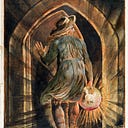Roman Poetry
In her very entertaining book, “Whoever Tells the Best Story Wins” Annett Simmons, tells her own story about storytelling and does so in a way her reader comes away a better storyteller and with an understanding of why that’s important. While this article is ostensibly about Roman Poetry, it can’t discuss Roman Poetry without discussing storytelling because that is what all the great Greek and Roman poets were. They were highly gifted and accomplished storytellers like Dante Alighieri, Homer and Virgil in the painting below.
Famed storyteller instructor, Robert McKee, advises students to “display the struggle between expectation and reality in all it’s nastiness” and sure enough, when we look at the stories of famed Roman storytellers we see the “display of the struggle between expectation and reality”.
The start of Latin literature is conventionally dated to the first performance of a play by a Greek slave, Livius Andronicus, in Rome in 240 BC. Livius translated Greek New Comedy for Roman audiences, using meters that were basically those of Greek drama, modified to the needs of Latin.
After the victory of Rome in the First Punic War in 241 b.c., there was considerable interest in Roman history, encouraging many to write about the early triumphs and disasters that Rome had faced. Livius Andronicus was the first to make use of this enthusiasm.
“If you can harness imagination and the principles of a well-told story, then you get people rising to their feet amid thunderous applause instead of yawning and ignoring you.” — Robert McKee
“The great irony of existence is that what makes life worth living does not come from the rosy side. We would all rather be lotus-eaters, but life will not allow it. The energy to live comes from the dark side. It comes from everything that makes us suffer. As we struggle against these negative powers, we’re forced to live more deeply, more fully.” — Robert McKee
The story engenders a positive but realistic energy in the people who hear it.
Titus Maccius Plautus, commonly known as Plautus, was a Roman playwright of the Old Latin period. His comedies are the earliest works in Latin literature to have survived in their entirety. He wrote Palliata comoedia, the genre devised by Livius Andronicus. The word Plautine /ˈplɔːtaɪn/ refers to both Plautus’s own works and works similar to or influenced by his.
In plays like “Curculio” the story of “the struggle between expectation and reality in all it’s nastiness” is on full display. In Curculio Phaedromus is in love with Planesium, a slave girl belonging to Cappadox. Phaedromus sends Curculio to borrow money. Unsuccessful, Curculio happens to run into Therapontigonus, a soldier who intends to purchase Planesium. After Curculio learns of his plans, he steals the soldier’s ring and returns to Phaedromus.
Phaedromus and Curculio fake a letter and seal it using Therapontigonus’ ring. Curculio takes it to the soldier’s banker Lyco, tricking him into thinking he was sent by Therapontigonus. Lyco pays Cappadox to free Planesium, under the conditions that the money will be returned if it is later discovered that Planesium is freeborn. Curculio takes the girl back to Phaedromus. When the trick is later discovered, the angry Therapontigonus confronts the others. However, Planesium has discovered from the ring that she is actually Therapontigonus’s sister. Since she is freeborn, Therapontigonus is returned his money, and Planesium is allowed to marry Phaedromus.
Virgil was one of ancient Rome’s greatest poets. His influence on the world’s literature has been immeasurable, and his works (along with those of Seneca, Cicero, Ovid, Aristotle and Plato) have been continuously read throughout the Middle Age and up to the present day. Virgil’s epic poem “The Aeneid”, which includes the story of the Trojan Horse, is considered his magnum opus, as well as Rome’s national epic, and has served as a model of literature ever since, but Virgil also wrote much bucolic and didactic poetry.
Annett Simmons would likely agree, the Roman use of poetry told the best stories.
